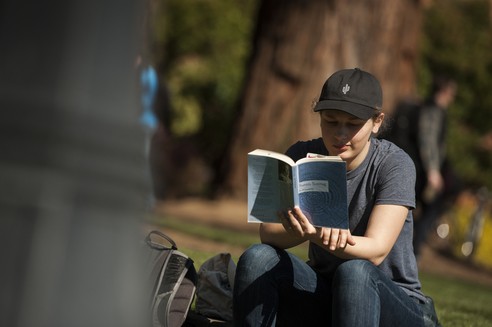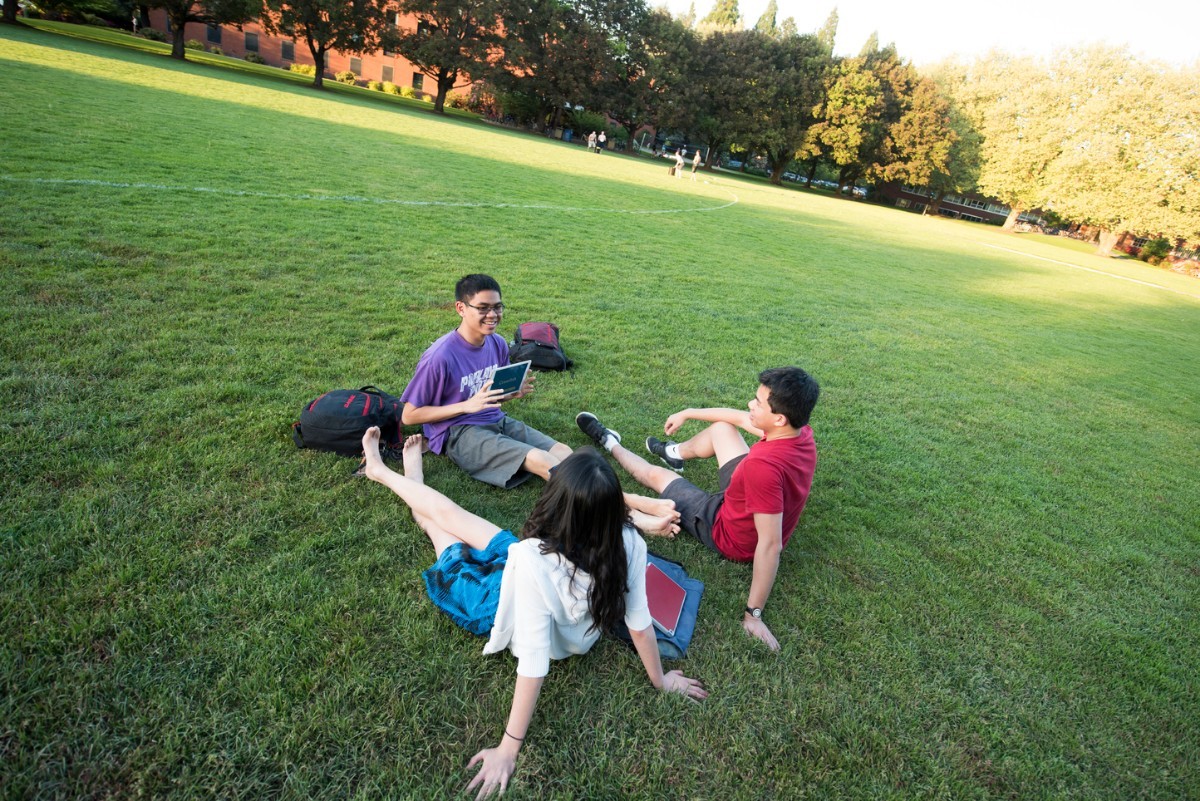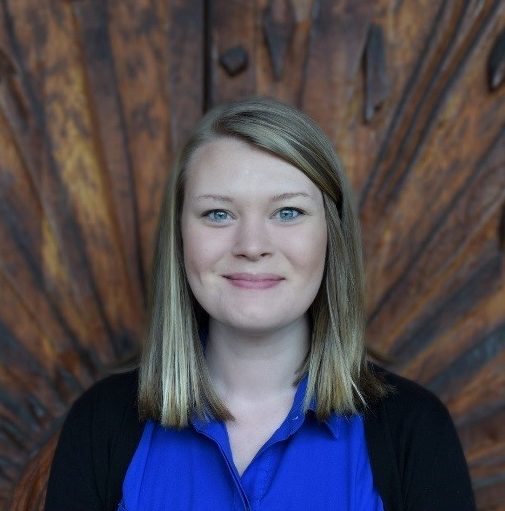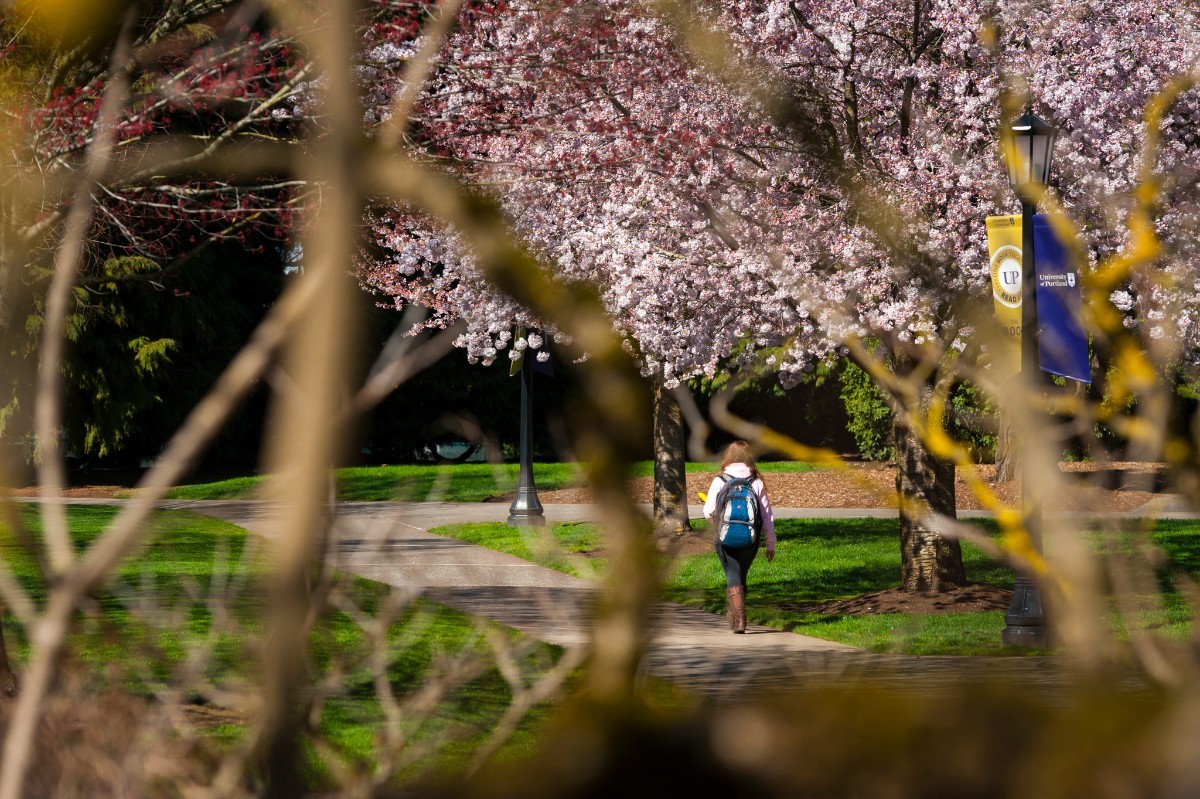As the school year winds down, first-year students will often feel a wide range of emotions (probably more this year than ever): relief upon finishing their first year, excitement for summer freedom, sadness to be away from their friends for even longer, and uncertainty about sophomore year. Courtney Campbell, Program Manager of First Year Programs in the Shepard Academic Resource Center, shares how your student can maximize their summer to ensure a great start to their second year on campus.
When in college, summertime offers a new and different taste of adult freedom. With freedom, as the Eleanor Roosevelt quote goes, comes responsibility. Here are three things to put on your student’s radar during the summer months to help them avoid the “Sophomore Slump.” The learning continues even after classes end in April!
1. Reflect on the First Year
It is very easy for students to turn in that last final exam in April and think “I did it – now on to summer!” and completely disregard the immense transition they have just gone through. After some deep breaths and celebrations of success, your student should think critically about their first year at UP. Some questions you can ask your student to help with this reflection are:
- How did your study habits have to change from high school?
- What was your favorite/least favorite class? Why?
- What did you accomplish this year that you are proud of?
- What advice would you give an incoming student?
- What do you wish you would have done differently this year?
These open-ended questions should spark a great conversation between you and your student. By answering and reflecting on these, your student should be able to process the growth they’ve done over their first year and also hear their own advice for best practices as a student.
2. Build an Employable Skill Set Online
Summer jobs are a great way to spend time gaining transferable career skills and save up some spending money, but the reality is that COVID-19 may have impacted your student’s internship and summer job plans. Here is my favorite piece of advice I received in college, which I think still applies now:
“What career do you want after college? Find a job description right now that you would consider your ‘dream job.’ Read the required skills section, and from there figure out what jobs you can get now that relate to those bullet points. Once you graduate, you will have tangible evidence that you are a great candidate for a similar role. Need strong customer service skills? Go work where you’ll encounter all different types of people. Need knowledge on a specific topic? Find a place you can learn on the job!”
Even though summer job and internship plans may have shifted, it doesn’t mean that students can’t start working towards their “dream job” by following a similar mental exercise and then building their skill set online! CollegiateParent offers ideas for free and low-cost online courses and certifications. UP also offers free certifications in specific skills through LinkedIn Learning, which even allows employers to view which courses students have completed. Students can access LinkedIn Learning through their MyApps portal.
Your student can also reach out to the UP Career Center to get their resumes and cover letters polished over the summer. The Career Center is available virtually!
 3. Read for Fun
3. Read for Fun
Students have been told what to read for 8 months and may feel some negativity toward picking up another book. To combat the dislike of reading, suggest that they pick up a book for fun and read it. Even one book over the summer for their own personal enjoyment can reverse some of the negative thinking when it comes to the act of reading. There are so many books out there that follow current events, are based on technology, or are just plain fun fiction. If your student doesn’t know where to start on finding a book, have them visit this common reading website which has specially curated lists for college students!
Also, don’t forget about your local public library. Many of them have e-reader options. And what college student doesn’t love free things?

Overall, your student might feel like their life flew past them at 90 miles an hour during their first year at college. This summer can still be an opportunity to learn – but maybe at 30 miles an hour instead. Taking things slow and being intentional with how they spend their time will help bridge the gap between their first and second years.

Courtney Campbell works in the UP Shepard Academic Resource Center specializing in First Year Programming. Courtney’s goal is to ensure the successful transition of all first-year students to UP’s campus and through to their second year. Courtney is a great example of someone who went to college as a pre-health student and graduated with a different career path in mind. After receiving her BS in Biochemistry from the University of Texas at Dallas, Courtney taught high school math and college preparation in Atlanta, Georgia through Teach for America. Her work with students guided her to pursue her M.Ed. in Professional Counseling from the University of West Georgia with an emphasis in College Student Affairs. Courtney’s passion for First Year Programming can be traced all the way back to her first on-campus jobs as an undergraduate – Orientation Leader and First Year Workshop Leader.

